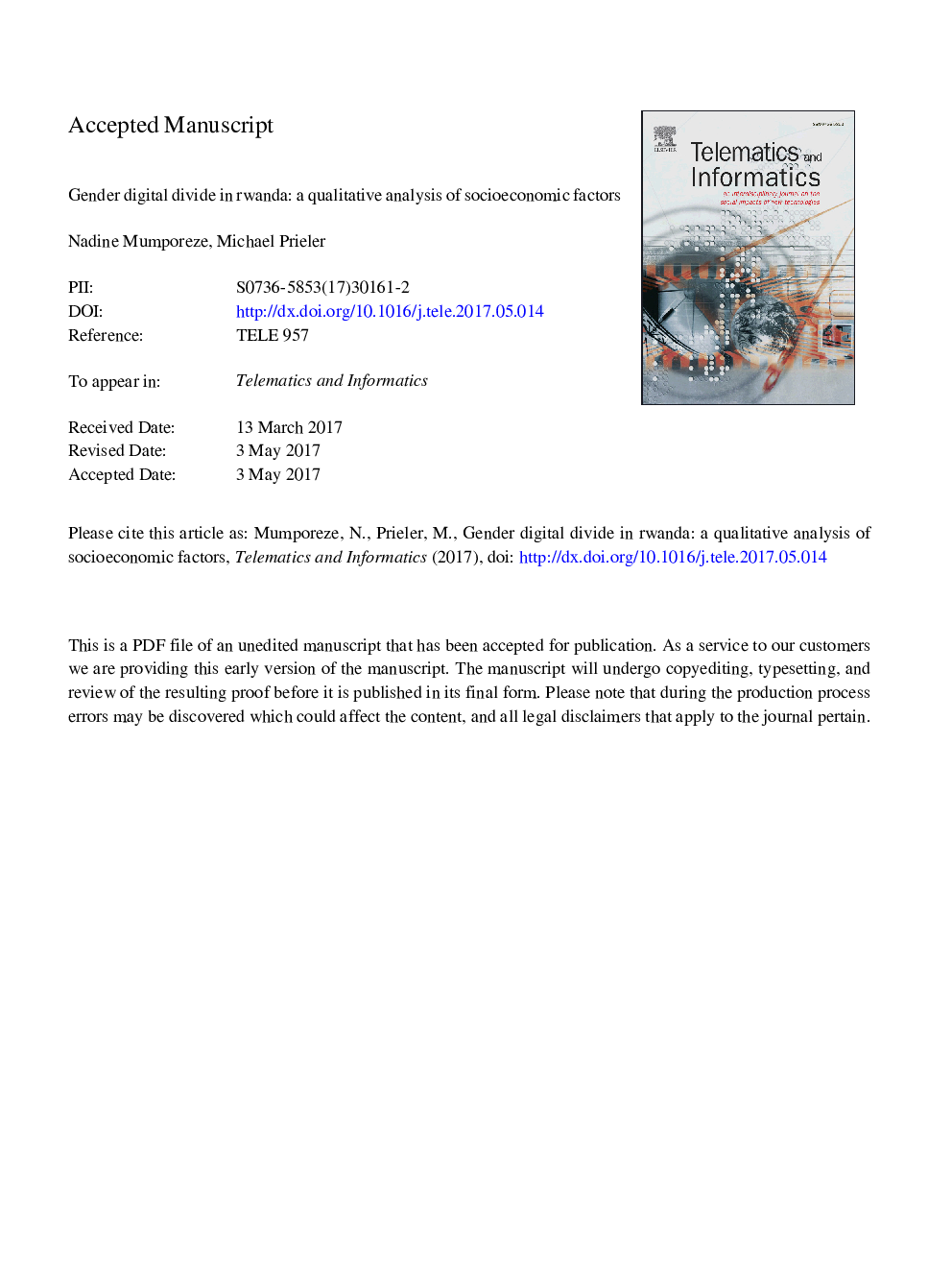| Article ID | Journal | Published Year | Pages | File Type |
|---|---|---|---|---|
| 6890031 | Telematics and Informatics | 2017 | 35 Pages |
Abstract
This study aims at exploring how information and communications technology (ICT) is accessed and used by women and men in Rwanda. Specifically, we analyze the factors that contribute to the gender digital divide in Rwanda. In addition, we assess the importance of equal access to ICTs between genders. Rwanda is a particulary interesting case study, since previous studies on gender differences in the usage and accessibility of ICTs have focused on Western countries, while Africa, and Rwanda in particular, have been less covered. The qualitative method of in-depth interviews was used to collect the data. Interviews were analyzed using a thematic analysis technique. The findings of this study reveal that a gender digital divide still exists in Rwanda, even though the government puts forth much effort to eradicate this phenomenon. Reasons for barriers for women's access to ICTs were found in social, economic and cultural factors, such as feelings of lack of self-worth, self-confidence, and proper educations; heavy domestic responsibilities; and computer anxiety. The findings also indicated that equal access to ICTs would be a shortcut to economic growth in Rwanda. This study concludes that Rwandan women need to be better educated in the use of computer technologies. Certain gender-sensitive strategies that guide the use of ICTs in this way also need to be established.
Related Topics
Physical Sciences and Engineering
Computer Science
Computer Networks and Communications
Authors
Nadine Mumporeze, Michael Prieler,
